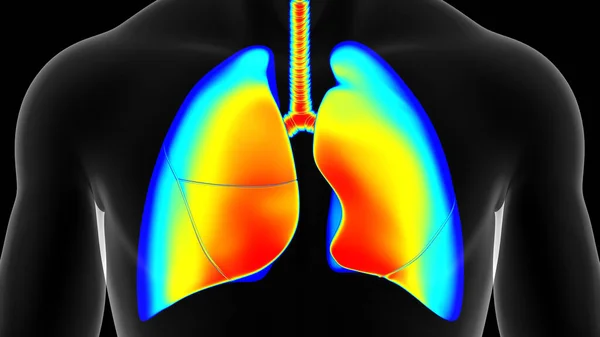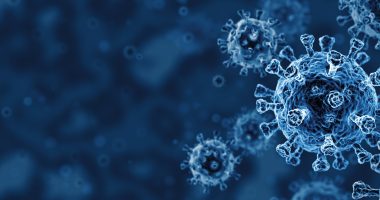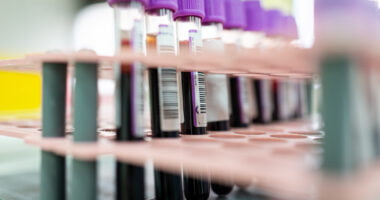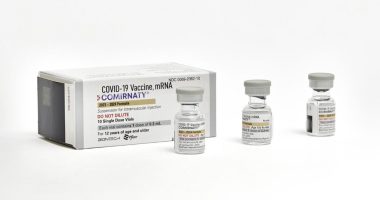IFNγ Plays Key Role in Reducing Lung Viral Loads in COVID-19
A new study has identified interferon gamma (IFNγ) as a crucial player in the fight against COVID-19 by reducing viral loads in the lungs.
This exciting discovery opens up promising avenues for both prevention and treatment of the disease. The study, conducted by researchers from the United States, investigated the role of IFNγ in antiviral immunity against SARS-CoV-2 in murine models.
Background
- COVID-19, caused by SARS-CoV-2, primarily infects lung epithelial cells expressing angiotensin-converting enzyme 2 (ACE2).
- While interferons (IFNs) of types 1 and 3 are known for their role in antiviral response, the role of type-2 IFN (IFNγ), especially in SARS-CoV-2 infection, is poorly understood.
- IFNγ is a cytokine immune cells produce in response to bacterial infection to combat intracellular pathogens.
- Although IFNγ is not typically required for pulmonary viral resistance, studies in mice and immunocompromised patients indicate that recombinant IFNγ treatment may be useful against viral infections, including that of SARS-CoV-2.
- Evidence on therapies acting through IFNs has highlighted that timing of treatment relative to viral exposure is critical, often requiring pre- or early post-exposure administration.
- Interestingly, an ongoing IFN response to existing or recent infection, such as lung infection with Mycobacterium bovis BCG (short for Bacillus Calmette-Guérin), has shown protection against SARS-CoV-2 in animal models.
About the study
- The researchers used wild-type (WT) B6 mice and inoculated them intravenously with BCG or phosphate-buffered saline (PBS) 40–45 days before challenging them with SARS-CoV-2 intranasally.
- They then measured viral titer in the lungs of the mice and analyzed lung cells using single-cell RNA sequencing (scRNAseq).
- Additionally, they performed cytokine staining on lung cell suspensions and irradiated and reconstituted Ifngr1−/− mice (mice lacking the IFNγ receptor) with WT bone marrow.
- Recombinant IFNγ was administered to WT or Ifngr1−/− animals before and after the SARS-CoV-2 challenge, and their lungs were analyzed.
Results and discussion
- The study found that the lungs of WT BCG-treated mice had a significantly reduced viral load compared to controls.
- scRNAseq data showed that the lungs of BCG-treated animals had more differentially expressed genes related to inflammation, antiviral immunity, and IFN signaling in macrophages and dendritic cells compared to controls.
- IFNβ and IFNγ were significantly higher in BCG-treated animal samples than controls, with T-cells and natural killer cells being the major sources of IFNγ.
- No reduction in viral load was observed in Ifngr1−/− mice, suggesting that IFNγ signaling is required for BCG-induced protection against SARS-CoV-2.
- BCG-treated WT mice also showed a reduced inflammatory cytokine response, suggesting that BCG-induced IFNγ controls viral load rather than SARS-CoV-2-related inflammation.
- Studies on irradiated and reconstituted Ifngr1−/− mice showed that IFNγ signaling in non-hematopoietic cells is sufficient for BCG-induced protection against SARS-CoV-2.
- Bronchiolar epithelial cells, macrophages, and pneumocytes were most immunoreactive to the SARS-CoV-2 nucleocapsid. Findings suggest that BCG-induced IFNγ controls SARS-CoV-2 infectivity and/or replication within the epithelial cells.
- WT mice administered with recombinant IFNγ showed reduced or no viral load, suggesting that pre-existing IFNγ responses can control SARS-CoV-2 infection and/or replication across epithelial cells, protecting the host from related tissue damage and immunopathology.
READ MORE NEWS: Progeria Patients Connect: Bridging the Gap for a Rare Disease Community
Additional notes
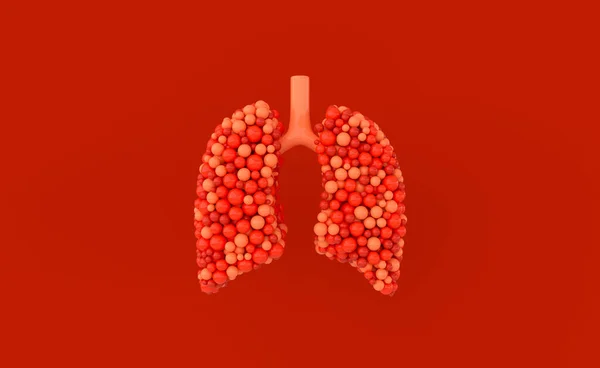
The study we discussed earlier sheds light on a potentially crucial player in the fight against COVID-19: interferon gamma (IFNγ). Its role in reducing lung viral loads in mice infected with SARS-CoV-2 offers exciting possibilities for both prevention and treatment. Let’s delve deeper into these possibilities, exploring the potential of IFNγ-based strategies in COVID-19 management.
Understanding IFNγ’s Action
Imagine a battlefield within your lungs. SARS-CoV-2, the enemy, invades epithelial cells, its spiky crown latching onto ACE2 receptors like a key unlocking a door. Inside these cells, the virus replicates, churning out copies of itself. This is where IFNγ steps in, playing the role of a valiant general.
- Sounding the Alarm: IFNγ, produced by immune cells like T cells and natural killer cells, acts as a signal, alerting nearby cells to the viral threat. This triggers a cascade of antiviral defenses.
- Fortifying the Walls: Stimulated by IFNγ, epithelial cells ramp up production of proteins that restrict viral replication, making it harder for the virus to multiply.
- Calling in Reinforcements: IFNγ also attracts and activates other immune cells, such as macrophages and dendritic cells, to join the fight. These cells engulf and destroy infected cells, further limiting viral spread.
Harnessing IFNγ’s Power
The study suggests two promising avenues for utilizing IFNγ’s potential:
1. BCG Vaccination as a Preemptive Strike:
- BCG, the vaccine against tuberculosis, has shown surprising benefits in protecting against COVID-19 in animal models. This study suggests that one reason might be its ability to induce a robust IFNγ response in the lungs.
- Administering BCG, particularly intravenously, could potentially prime the immune system with IFNγ soldiers, ready to combat SARS-CoV-2 upon exposure.
2. Recombinant IFNγ as a Targeted Weapon:
- The study’s findings that pre-existing IFNγ responses can control viral load pave the way for exploring recombinant IFNγ as a therapeutic agent.
- Administering recombinant IFNγ intranasally, directly to the lungs where the battle rages, could provide immediate reinforcements to fight the viral invasion.
Challenges and Considerations
While promising, IFNγ-based strategies come with challenges:
- Timing is Critical: As the study emphasizes, the timing of IFNγ administration is crucial. Giving it too early or too late might not be effective.
- Dosage Matters: Finding the right dosage is essential. Too little might be ineffective, while too much could trigger harmful inflammation.
- Individual Variations: People’s immune systems respond differently. What works for one person might not work for another.
Further Research and the Road Ahead
The study on IFNγ is a significant step forward, but more research is needed. Clinical trials are crucial to evaluate the safety and efficacy of IFNγ-based approaches in humans. Additionally, understanding individual variations in immune response will be key to personalizing treatment strategies.
The Future of IFNγ in COVID-19 Management
While not a silver bullet, IFNγ-based strategies offer a promising avenue in the fight against COVID-19. By harnessing its antiviral power, we might be able to develop effective preventive and therapeutic tools to better manage this disease and protect lives.
Remember: This is an ongoing field of research, and new information is constantly emerging. Stay informed about the latest developments, and consult with healthcare professionals to make informed decisions about your health.
MORE NEWS: Natural Supplements Guayusa Tea and Lion’s Mane Boost Cognitive Performance, Study Finds
Continue to check our website soundhealthandlastingwealth.com for more articles of this kind. And, please use our comment section as well, we would love to hear from you. Study source
